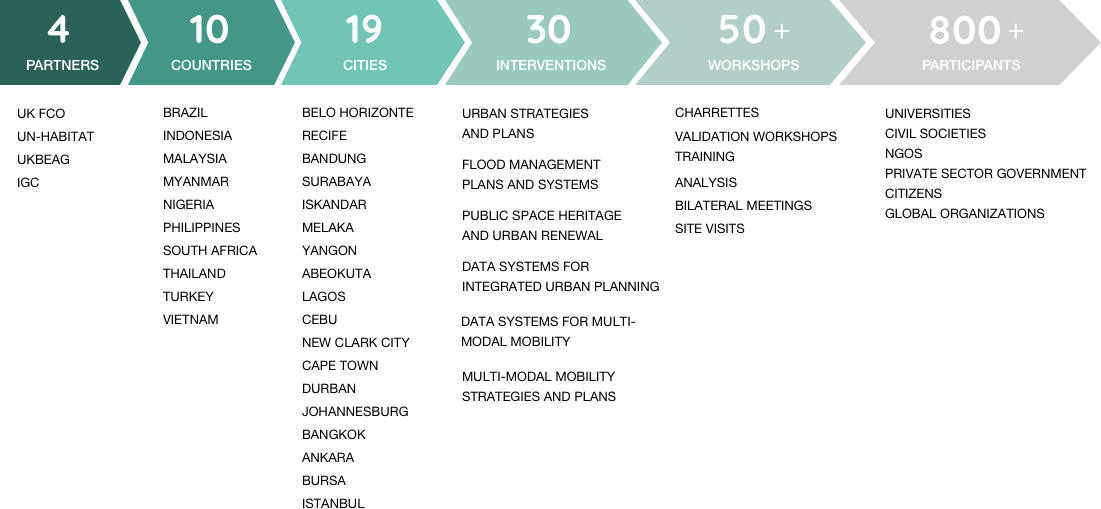Overview
The Global Future Cities Programme (GFCP) is a specific component of the Prosperity Fund, which aims to carry out technical assistance for a set of targeted interventions to encourage sustainable development and increase prosperity while alleviating high levels of urban poverty, in particular, based on three thematic pillars: urban planning, transport and resilience. The Programme will also create significant short and long-term business opportunities in growing markets.
The Challenge
In 2015, the UK Government established the Prosperity Fund in order to help promote economic growth in developing countries. Its broad priorities include improving the business climate, competitiveness and operation of markets, energy and financial sector reform and in increasing the ability of Governments to tackle corruption. Although increasing numbers of developing countries and cities are able to finance their own development, many still face considerable challenges such as rapid urbanisation, climate change and high and persistent inequality which can lower long-term growth prospects, including in middle income countries where the majority of the urban poor reside. The Prosperity Fund supports the broad-based and inclusive growth needed for poverty reduction to make development sustainable.
Strategic Development Phase

The overall strategy is to deliver the Programme in two phases: a Strategic Development Phase, followed by an Implementation Phase. The Strategic Development Phase informs and shapes the Implementation Phase, and provides further evidence for the Programme.
The Strategic Development Phase of the GFCP was implemented with the support of UN-Habitat from April to December 2018. This phase aimed at supporting the UK Foreign and Commonwealth Office (UK FCO) in the identification and definition of a wide range of strategic interventions in 19 cities across 10 countries. Several key milestones were achieved during the Strategic Development Phase including: stakeholder mapping and engagement; intervention definition, context analysis, viability assessment, assessment of the professional capacity and the market maturity of cities; a Transition Training, 20 Charrettes and 19 Validation Workshops.
The Strategic Development Phase resulted in Terms of References (ToRs) for 30 interventions, supported by 19 city context reports, eight thematic cluster papers, five policy papers and two normative reports, as input and basis for the Implementation Phase.

Implementation Phase
The Delivery Partners have began their work in autumn 2019, and will continue until the closure of the Implementation Phase in 2022. During the Implementation Phase, Delivery Partners will provide technical assistance to city authorities to implement the 30 Terms of References.
As the Programme is classified as Official Development Assistance (ODA), the UK FCO places importance on selecting Delivery Partners with international and national presence, expertise in cross-cutting issues such as gender and a solid understanding and commitment to the SDGs and the NUA.

